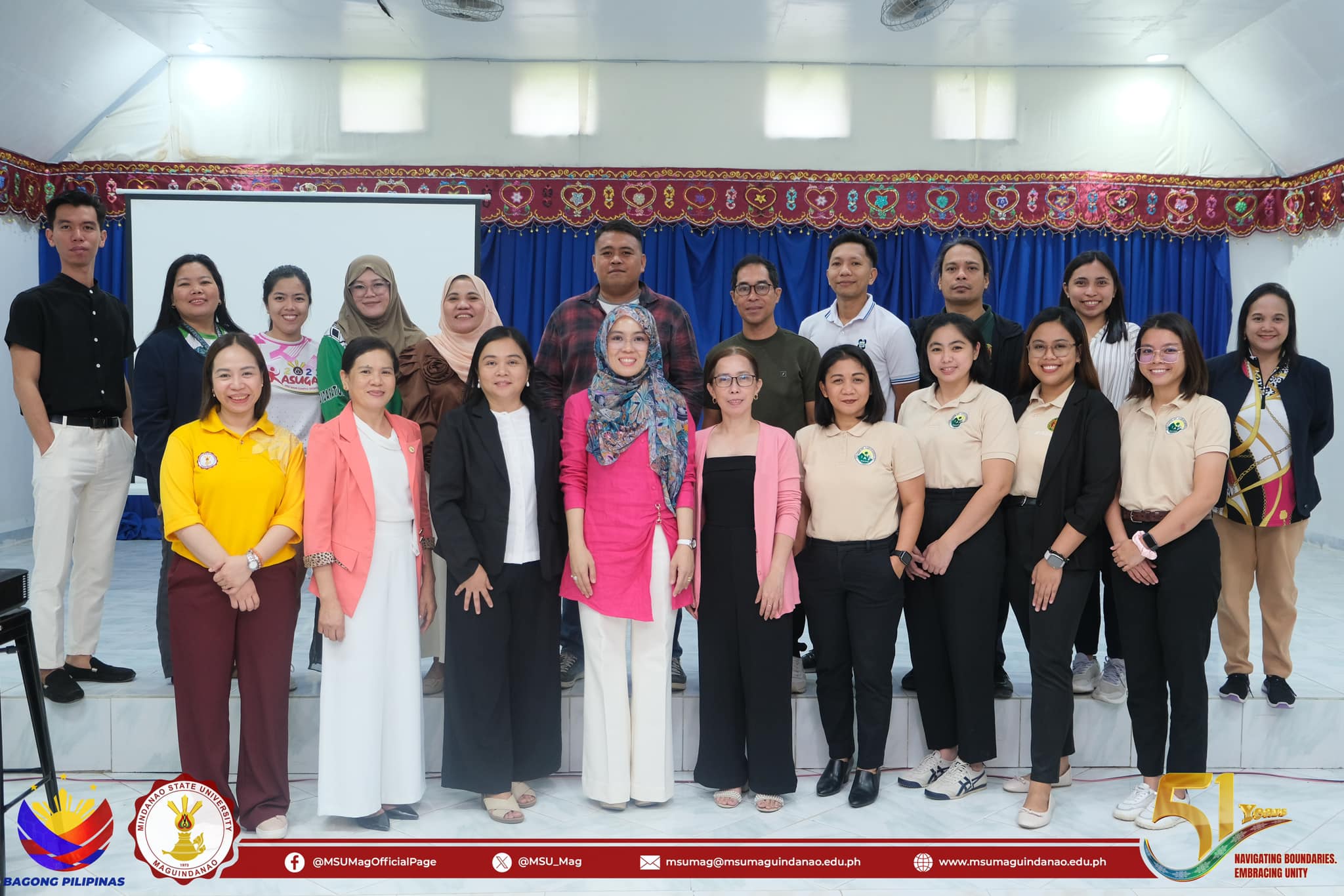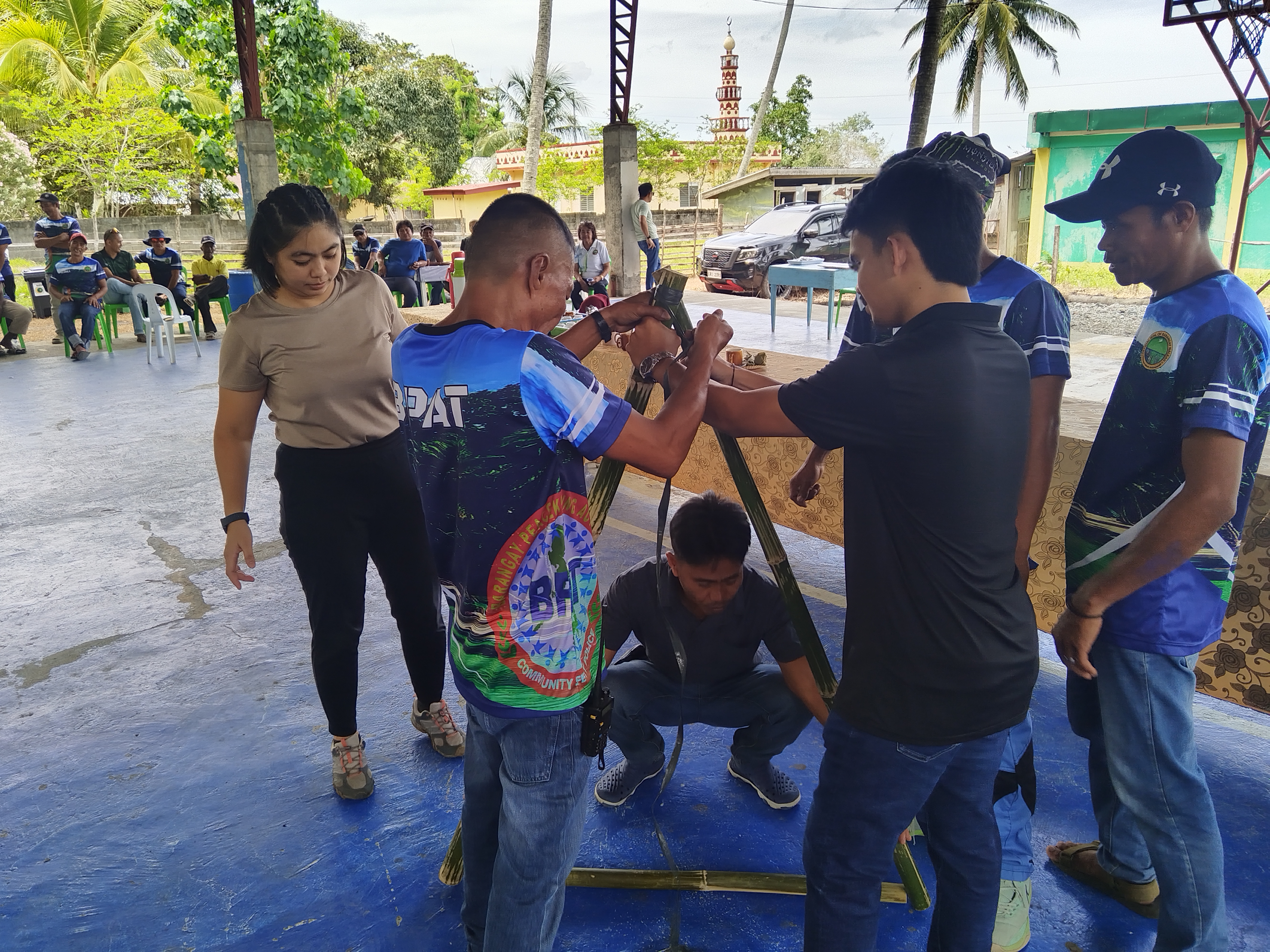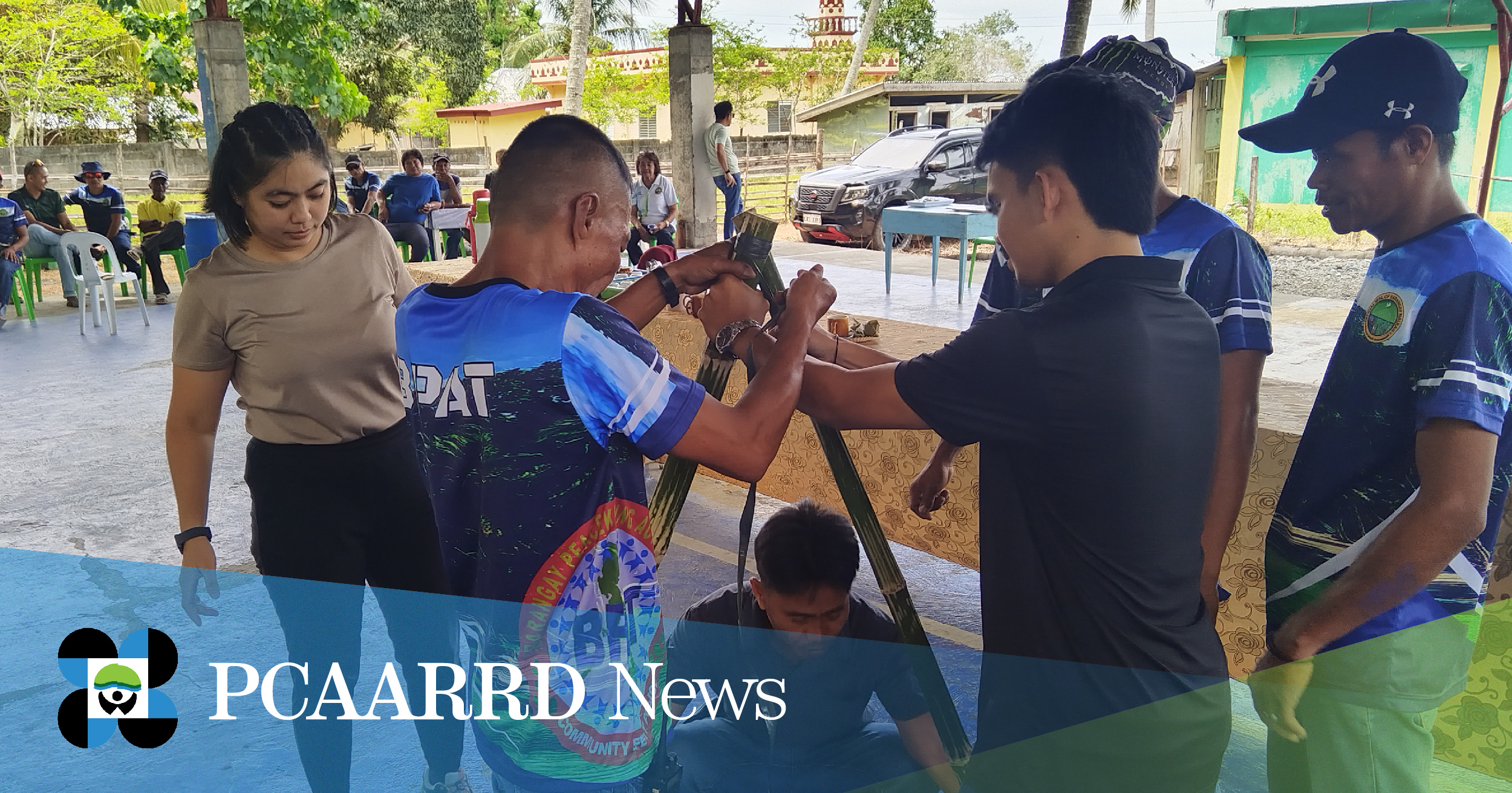
Project Leader Rowena Benavides presenting the key objectives and implementation plans to stakeholders during the project launch and ALCAMS training. (Image credit: Alexander John D. Borja, DOST-PCAARRD)
With the growing climate risks affecting the livelihood of the local communities in Maguindanao, a project was launched to enhance climate resiliency through the establishment of native tree and fruit tree-based agroforestry farms in barren and sloping areas.
In partnership with the University of the Philippines Los Baños - Institute of Agroforestry (UPLB-IAF), the project, “Enhancing Climate Resilience through Native Tree and Fruit Tree-based Agroforestry Technology: A Science and Technology-Based Initiative for Emergencies and Hazards in Datu Blah Sinsuat, Maguindanao,” is being implemented by the Mindanao State University (MSU). It is being funded by the Philippine Council for Agriculture, Aquatic and Natural Resources Research and Development of the Department of Science and Technology (DOST-PCAARRD).
Key stakeholders including MSU officials, faculty, staff, and students from MSU Maguindanao, MSU Naawan, and MSU Buug gathered during the project launch at MSU Maguindanao.
During her welcome remarks, MSU Maguindanao Vice Chancellor for Research and Extension Raquel D. Santiago-Arenas emphasized the project’s significance. “This project is a milestone for MSU Maguindanao as it not only addresses climate change but also strengthens the university’s commitment to science and technology-driven solutions for community resilience,” she stated.
Project Leader Rowena C. Benavides provided an overview of the project. She highlighted its goal of preventing disasters in sloping and barren lands through strategic agroforestry interventions. “This initiative under DOST-PCAARRD’s SAFE (S&T Action Frontline for Emergencies and Hazards) modality will integrate science-based approaches to promote sustainable agroforestry practices. More than addressing climate change, we aim to improve community livelihoods through these interventions,” she said.
Several key officials of the town also delivered messages expressing their gratitude and support for the project as well as its alignment with the local government’s environmental priorities. These further emphasized the project’s relevance to local governance and environmental conservation.

Representatives from MSU Maguindanao, UPLB-IAF, and DOST-PCAARRD during the project launch and training on ALCAMS for agroforestry land capability assessment. (Image credit: MSU Maguindanao)
For. Judy B. Angkad of the Provincial Environment, Natural Resources, and Energy Office also expressed her optimism in inspiring other areas in Mindanao to conduct similar efforts. “We hope that this project serves as a model for other LGUs to implement science-based approaches in environmental conservation,” she said.
Following the project launch, the training on Agroforestry Establishment and Development was conducted by UPLB-IAF, equipping participants with the skills and knowledge to implement agroforestry projects effectively. The training focused on the Agroforestry Land Capability Assessment and Mapping Scheme (ALCAMS), an essential tool for evaluating land suitability for agroforestry.
On-site training in Barangay Nalkan, Datu Blah Sinsuat provided participants with practical experience in agroforestry site assessment, which covered key aspects including construction and use of equipment for contour mapping crucial for soil and water conservation, observation of existing land use and slope determination for agroforestry planning, and soil fertility assessment using a soil test kit to evaluate nutrient levels and pH balance.

The participants also developed their re-entry action plans, which outlined strategies for applying agroforestry techniques in their respective areas. Through the training, participants were provided a deeper understanding of land assessment, agroforestry planning, and climate resilience strategies.
This initiative marks a significant step in integrating science-based agroforestry practices into local climate resilience strategies. The collaboration among DOST-PCAARRD, MSU Maguindanao, and UPLB-IAF underscores the power of science, technology, and community engagement in mitigating environmental hazards while fostering sustainable livelihoods.

